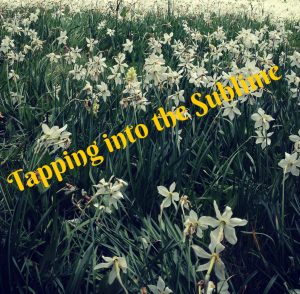Transcendentalism: The art of smelling the roses
For decades, the cultural maxim of smelling the roses has been well-

known and frequently referenced in times of distress and discouragement. It is used to raise the spirits of the dispirited and to boost the morale of the overworked.
In a nation fueled by rugged individualism and the concept of sleeping when the job is done, it is clear to see why it is frequently referred to.
However, adages such as wake up and smell the coffee, the term “look alive” in popular culture and be “wide eyed and bushy tailed” have captured an oppositional image. These sayings paint an intricate picture of Americana ideals.
Essentially, American ideals are in opposition to the concept of smelling the roses. Taking a brief look at the Eastern world, it is clear to see how a Western, American ideology of rapidity contrasts with Eastern notions of taking one’s time.
Thus, it is clear to see that American values are not quite in line with the idea of smelling the roses. It must also be said that our values are not necessarily negative. In fact, they have provided the impetus necessary for the Industrial Revolution, the institution of skyscrapers and much more.
But what can be said about this frequently used adage? Can smelling the roses be beneficial to the well-being of a person?
According to many writers and poets during 18th century Britain ranging from William Wordsworth to Samuel Coleridge, the answer is a resounding yes. These writers were known for advocating for smelling the roses, sometimes even in a literal sense.
They believed that by recognizing the beauty in nature one could access the spiritual nature of reality. This concept is known as transcendentalism. By practicing transcendentalism, one can experience a sense of sublimity which comes as a result of smelling the roses.
But what is the sublime? And what are the benefits of tapping into the sublime as a consequence of smelling the roses?
According to English associate professor Sean Kelly, “for Immanuel Kant, the sublime is the experience one has when the Reason encounters a limit that is interpreted as a sign of the infinite.” In other words, it is something that cannot be articulated due to its grandeur.
The sublime can often cause an individual to have awe inspiring experiences known as sublime moments. During these moments, one can often find oneself at a loss for words at the sight of natural phenomena.
Kelly states that he often has “ “sublime” moments frequently when writing about literature and ideas.” He also makes it clear that one’s sublime moment need not be limited to a natural phenomenon.
In his own experience he compares his experience of the sublime to that of being “like the narrator in Ben Learner’s novel Leaving the Atocha Station who we see walking around in an art gallery, waiting for his sublime moment that doesn’t come. However, the sublime seizes me when I don’t expect it.”
Kelly believes that tapping into the sublime can benefit someone by offering one a “sense and a reason for faith that there is a greater purpose to life, to other people, to art that is worth nurturing and fighting for. It takes us beyond the aesthetic experience to an ethical one.”
Sheylah Silva, a Wilkes student, adds to this idea by stating that her “last sublime moment I had was during the blood moon when I stayed up to watch it and my breath was just taken away by the sight.” In line with many sublime moments, this moment happened in response to natural phenomena.
However, it may not be the same for another individual, it varies. To Silva, in order to tap into the sublime it “involves awareness, really. Simply pay attention because you won’t know when it could happen.”
With this being said, it is clear that smelling the roses is not a suggestion that should be taken lightly. If practiced effectively, it can allow one to have experiences that come as a result of paying attention to the little things.
So next time you’re on your daily commute, be sure to pay close attention to the natural phenomena that are occuring around you.
Life is not about monotony and completing a nine to five whether that be in a job or on an academic level.
Life is to be lived to the fullest. So wake up and smell the coffee but be sure to smell the roses too.
Savannah is a junior English major with a minor in Women's and Gender Studies.
In the Fall of 2017, Savannah started her experience with The Beacon...